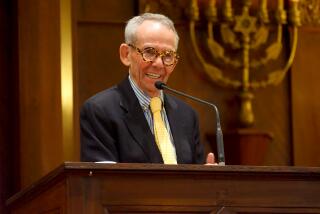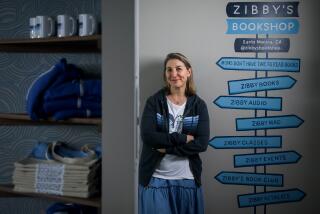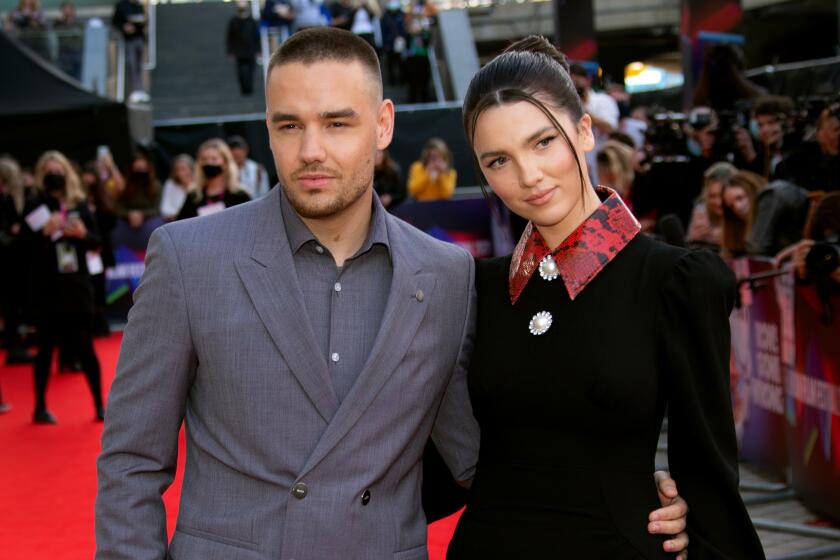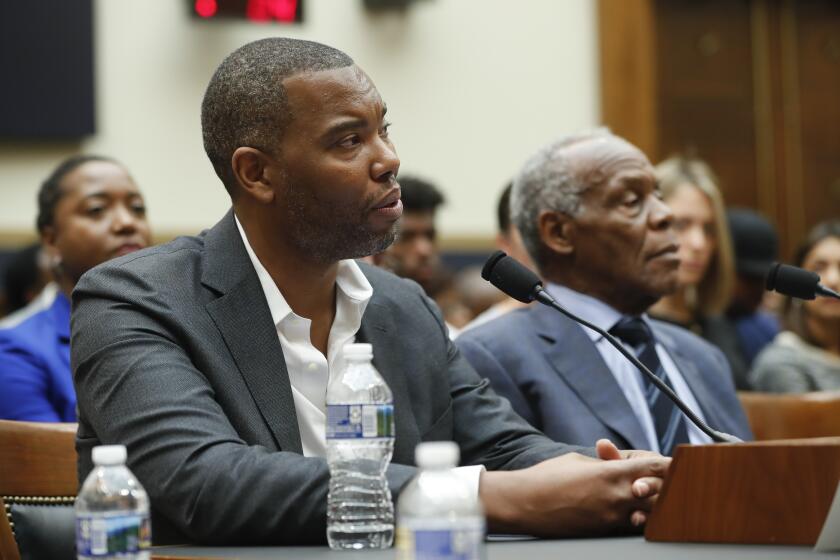Hey! Hey! Ex-Monkee Is Also a Novelist
Michael Nesmith was the guitar player with the Monkees, the 1960s pop group/sitcom.
Post-Monkees, he produced the movie “Repo Man” as well as “Elephant Parts,” which was the first music video to receive a Grammy.
And post-post-Monkees, he wrote his first novel, “The Long Sandy Hair of Neftoon Zamora” (St. Martin’s Press), published in 1998.
Nesmith, 56, who has homes in Los Angeles and Santa Fe, N.M., is working on his second novel. He said he writes every morning from 5 until 10, leaving the rest of the day for other business.
Question: Can you talk about the book you’re working on?
Answer: Sure.
Q: Don’t want to jinx you or anything.
A: No, no, no, no. I don’t do voodoo. The germ of the idea came from “Zamora,” where [the character] Nez realizes that he’s been trying to avoid his own personal Las Vegas and that the life of all Americans comes with a potential arc from Tupelo, Miss., to Las Vegas, Nev., and that Elvis lived it out. So the book that I’m writing now is called “The America Gene.” It’s a story about a man who is very successful, makes an attempt to avoid his own personal Las Vegas as he finds the gene awakening in him and pushing him into wearing stranger clothes and doing weirder things.
Q: Has your America gene awakened?
A: No. Well, at least I don’t think so. I think what happened when I discovered the America gene, I thought, “Oh, don’t go there.”
Q: What kind of work did you do when you were a kid?
A: I had a paper route in my early teens, 13 or 14. I delivered fried chicken in one of those Volkswagens with a chicken on top. And I worked in a music store in 1956, ’57. It was sort of a magical time. People would come in and do in-store appearances, people like Chuck Berry. And then, let’s see, I worked as a stock clerk.
Q: How did your mom feel about her son wanting to be a musician and moving to L.A.?
A: Well, first of all, she was an artist herself so she understood the impetus. Also, she had invented Liquid Paper, which was moving her along a certain way, and she knew that I wasn’t going to be part of that business, that I had to follow this other drummer.
Q: What kind of work did you do in L.A. in the early ‘60s?
A: I didn’t do anything except write, play the guitar and sing. It’s sort of miraculous when I think back on it, because everybody comes and takes another job until they can get their sea legs. I mean, I had a terrible time making ends meet, but I felt like it was important to get out every day and do only that job, which was to play, write, sing and perform. So I’d end up spending long hours at the International House of Pancakes over one coffee, trying to figure out what in the hell I’m going to do next.
Q: What was the roughest time, when you didn’t think you were ever going to make it?
A: I hit the skids at one point and thought, “I’ve had it.” I went down to the Troubadour on a Monday night, which was the night everybody could get up there. I had written a bunch of songs and played them. It was sort of a desperate last minute. And much to my surprise, the place just went up in smoke. People were cheering and yelling and screaming. A guy came up to me out of the crowd afterward and said, “I’m a music publisher. I’d like to buy some of those songs.”
Q: You were a pioneer in music videos. How did that come about?
A: In the mid-’70s, I had been asked to do a promotional film for a record that I had done called “Rio,” to be distributed in Europe. I made something very lavish, not understanding that what they wanted me to do is stand in front of a camera and just play my guitar and sing the song. And it met with great approval in Europe. One of the ways European records were promoted at the time was to play these clips on state television. . . . What I said was, “Gee, you mean to tell me they’re using television to promote hit records?” That sounded like a pretty good idea to me. I put together a program, which was called “Pop Clips,” and sold it to Warner Bros., which turned it into MTV.
Q: So you’re not likely going to “do” Vegas any time soon?
A: My gut is to say no. Maybe I’d go be a busboy in Las Vegas for an afternoon and see what that was all about.
Q: And then get out.
A: Yeah. Long as I could get out, I’m all right.
*
Whatever Works runs every Monday. Send e-mail to socalliving@latimes.com.
More to Read
Sign up for our Book Club newsletter
Get the latest news, events and more from the Los Angeles Times Book Club, and help us get L.A. reading and talking.
You may occasionally receive promotional content from the Los Angeles Times.







